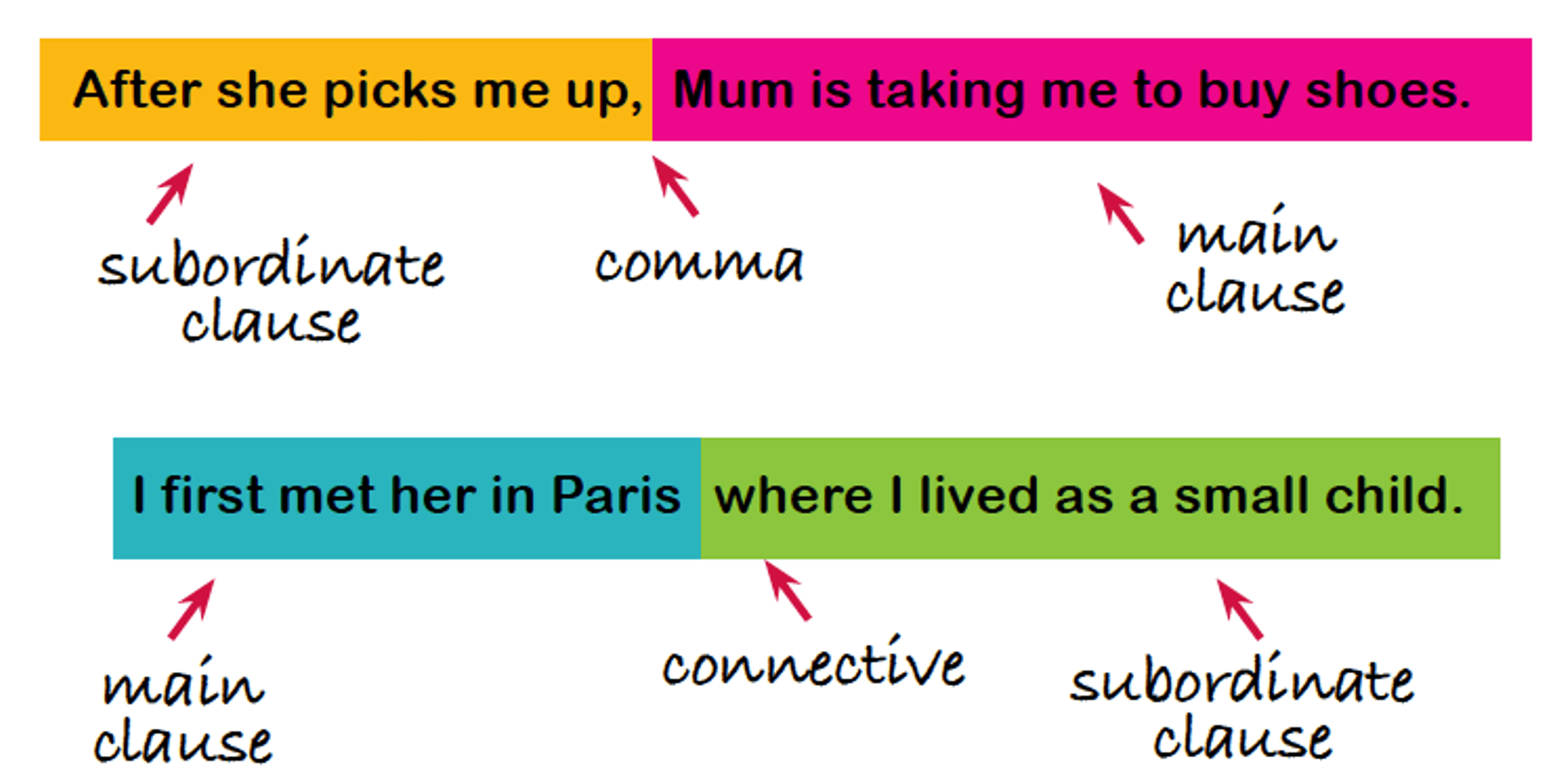Sentence Clauses
On this page, we will learn about sentence clauses, what is a clause in a sentence?, what if the subject and verb are absent?, and examples of sentence clauses.
Sentence clauses will be covered in this grammar lesson. You can see from the IELTS writing band descriptors that you must be able to create complex sentences in order to receive a higher grammatical range score and to avoid receiving a lower accuracy score! The first stage is to comprehend "clauses", which are the fundamental units of sentences. For instance, the public band descriptors state that a band 4 only "rarely utilizes subordinate clauses." This suggests that in order to achieve a higher grade, you must effectively use subordinating clauses, so you must first understand what sentence clauses are.
What is a clause in a sentence?
A clause in a sentence is a collection of words that make up a complicated or compound phrase that have a (s) subject and a (v) verb. Simply a clause is a group of words that includes both a subject (s) and a verb (v).

For example:
| (s)Internet (v) is important.Here we see one sentence with one clause. |
However, it is possible to have two sentences, or two sets of words having a subject and a verb:
| (s) Internet (v) is important, but it(s) can be(v) dangerous too.Here we see one sentence with two clauses. |
Consider using three-sentence clauses.
| (s) Internet (v) is important, but (s)it (v)can be dangerous too, so (s)we (v)should be careful.Here we see one sentence with three clauses. |
Let's now include a fourth!
| (s) Internet (v) is important, but (s)it (v)can be dangerous too, so (s)we (v)should be careful when we use it.Here we see one sentence with four clauses. |
Let's jump to another example:
| (s) It (v) is raining outside.Here we see one sentence with one clause. |
And again one sentence with two clauses:
| (s) It (v) is raining outside, and some (s) kids (v) are enjoying their rain bath.Here we see one sentence with two clauses. |
Again consider using three-sentence clauses.
| (s) It (v) is raining outside, and some (s) kids (v) are enjoying their rain bath, but some street (s) animals (v) are suffering too.Here we see one sentence with three clauses. |
Let's now include a fourth!
| (s) It (v) is raining outside, and some (s) kids (v) are enjoying their rain bath, but some street (s) animals (v) are suffering too, and (s) they (v) are looking for a safe place.Here we see one sentence with four clauses. |
The difference between a sentence and a clause will then have become clear to you.
A sentence is a group of words that come between two full-stops and must be a complete and logical thought.
So sentence clauses are what make up a sentence, and one sentence can have multiple clauses.
What if the subject and verb are absent?
It's essential to understand the distinction between phrases and clauses. If there is no subject or verb in a section of the sentence, it could be a phrase. For example:
| (p) In many countries around the world, earthquakes are becoming more common. |
A phrase is a set of words without a subject or verb (because every sentence must include a subject and verb, a phrase cannot constitute a sentence on its own!). By now, you ought to understand the distinctions between a sentence, a clause, and a phrase. Practice time!